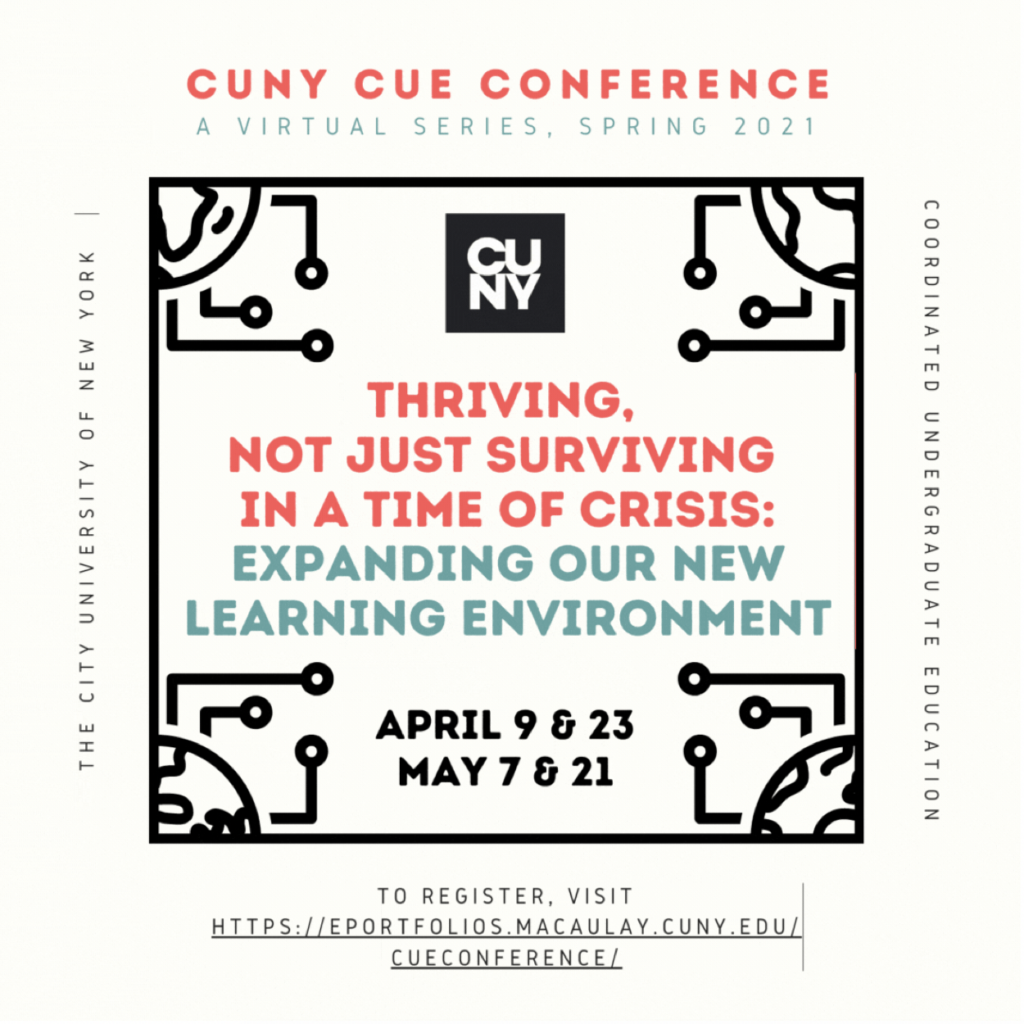This post was written by Contributing Author Nerve V. Macaspac, Asst. Professor of Geography, College of Staten Island; Doctoral Faculty, Earth & Environmental Sciences, Graduate Center.
On March 11, 2021, I organized a film screening of “My Pandemic” (2020, 6:55) and a conversation among students from different CUNY campuses centering on student experiences of the pandemic. This day was significant as it was also the 1st-year anniversary since New York City went on lockdown and CUNY transitioned to online learning in response to global COVID-19 pandemic. Over 65 participants including students, faculty and HEOs from CSI, BMCC, Hunter College, John Jay College, Queens College, and St. John’s University attended the event. Continue reading











